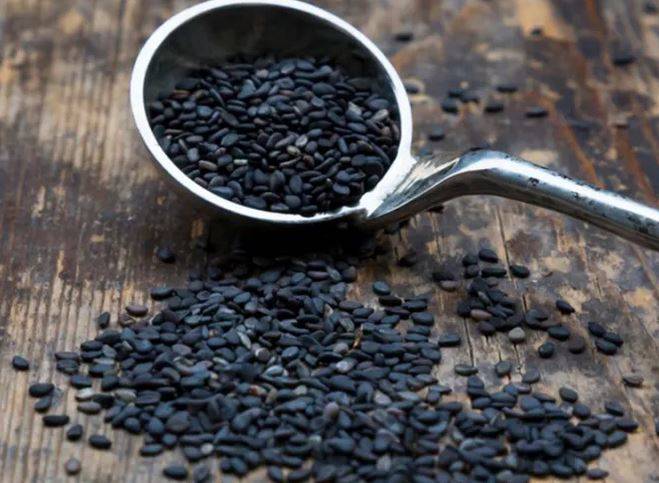Knee replacement surgery, also known as knee arthroscopy, can alleviate chronic pain and restore mobility in individuals suffering from severe knee joint damage. This procedure involves removing diseased or damaged parts of the knee joint and replacing them with metal or plastic artificial parts. Knee replacement surgery aims to improve joint function and quality of life, as well as treat osteoarthritis, rheumatoid arthritis, or post-traumatic arthritis. It is a common orthopedic intervention that can significantly enhance a patient’s ability to perform daily activities and enjoy an active lifestyle. However, as complex as the human body is, the problem with the knee is only a fraction of joint complications. Sometimes, a tear in the rotator cuff can cause serious injuries to the joints at the shoulder, necessitating the intervention of an expert like a Houston rotator cuff surgeon for repair.
What are the most common causes of knee replacement surgery?
Several factors can lead to the need for knee replacement surgery, with the most common causes being:
- Osteoarthritis:-
Bone ends are cushioned by cartilage that wears down over time, resulting in osteoarthritis. As a result, one may experience pain and stiffness and a reduction in joint function, often necessitating knee replacement surgery.
- Rheumatoid Arthritis:-
A condition caused by an autoimmune response, rheumatoid arthritis affects joints, including the knee joint. It can lead to chronic inflammation, joint damage, and deformities, making knee replacement surgery a viable treatment option.
- Post-Traumatic Arthritis:-
Injury to the knee joint, such as fractures or ligament tears, can result in long-term damage to the knee joint. Over time, this damage can lead to post-traumatic arthritis, prompting the need for knee replacement surgery. Post-traumatic arthitis is most common disease that treated by our best orthopaedic doctor in Jaipur, they treat these problems by different procedures. Well, read more to know about better orthopedic treatment.
What are the Types of Knee Replacement Surgery?
There are mainly two types of knee replacement surgery:-
- Total Knee Replacement (TKR)
Total Knee Replacement, also known as an arthroplasty or total knee replacement, is commonly used to treat severe knee joint damage. This comprehensive approach involves replacing the entire knee joint with prosthetic components. During TKR, the surgeon removes cartilage and bone from the tibia (shin bone) and femur (thigh bone) and replaces them with metal implants. A plastic spacer is inserted between these components to facilitate smooth joint movement. Patients typically undergo this procedure if they suffer from widespread knee joint conditions like osteoarthritis, rheumatoid arthritis, or post-traumatic arthritis.
- Partial Knee Replacement (PKR)
Partial Knee Replacement, also called PKR or a unicompartmental knee replacement, is an alternative to total knee replacement. It involves replacing only the damaged portion of the knee joint with prosthetic implants, preserving the healthy parts of the knee. PKR is suitable for patients with localized knee joint damage, often confined to the inner (medial) or outer (lateral) compartment. It offers the advantages of smaller incisions, quicker recovery, and potentially less post-operative pain compared to TKR.
The choice between TKR and PKR depends on the extent and location of knee joint damage and individual patient factors. Orthopedic surgeons assess each patient’s condition to determine the most appropriate surgical option for optimal pain relief and restored mobility.
Diet After Knee Replacement Surgery
A well-balanced diet is crucial to recovery and healing after knee replacement surgery, these are recommended by knee specialist in in Jaipur. Proper nutrition not only aids in tissue repair but also supports overall well-being during this critical period. Here are dietary guidelines to follow after knee replacement surgery:-
1. Include Lean Protein:-
It is essential to consume protein to repair damaged tissues and maintain muscle mass. Your body must receive an adequate supply of protein to heal incisions, rebuild muscle strength, and recover fully. Opt for lean protein sources like:
- Chicken breast: Skinless, boneless chicken breast is lean and protein-rich.
- Turkey: Similar to chicken, turkey is a lean source of protein.
- Fish: Salmon, tuna, and cod are excellent omega-3 fatty acids and protein choices.
- Beans and legumes: Lentils, chickpeas, and black beans are plant-based protein sources.
- Low-fat dairy: Greek yogurt and low-fat cheese provide protein with minimal fat content.
2. Fibre:-
Adequate fiber intake promotes healthy digestion, prevents constipation (common after surgery), and helps maintain stable blood sugar levels. Incorporate high-fiber foods such as:
- Whole grains: Choose whole wheat, brown rice, quinoa, and oats for fiber-rich carbohydrates.
- Fruits: Apples, pears, and berries are excellent sources of dietary fiber.
- Vegetables: Broccoli, spinach, and carrots are high in fiber and essential nutrients.
- Nuts and seeds: Almonds, chia seeds, and flaxseeds provide fiber, healthy fats, and protein.
3. Bell Peppers and Citrus Fruit
Bell peppers and citrus fruits are particularly beneficial post-knee replacement surgery due to their rich vitamin content:-
- Bell peppers: These colorful vegetables are packed with vitamin C, essential for collagen production, wound healing, and maintaining healthy connective tissues.
- Vitamin C and antioxidants are found in citrus fruits, which boost your immune system and aid in recovery.
4. Nuts and Seeds:-
Nuts and seeds offer a nutrient-packed snack option. They provide protein, healthy fats, vitamins, and minerals, making them ideal for the post-surgery diet. However, consume them in moderation to avoid excessive calorie intake.
It is important to drink water throughout the day to stay hydrated. Avoid sugary beverages and excessive caffeine, which can hinder hydration and recovery. Additionally, consult with your healthcare provider or a dietitian to tailor your diet to your needs and any dietary restrictions you may have. A well-rounded, nutritious diet will support your healing process and contribute to a successful recovery after knee replacement surgery.
Recovery Exercises for Knee Replacement Surgery
Rehabilitation exercises are vital for regaining strength and mobility after knee replacement surgery. Here are some important exercises to consider:
- Rest and Elevate
Elevating your leg when resting helps reduce swelling and promotes circulation.
- Ankle Pumps and Circles
These gentle movements help improve blood flow and prevent blood clots.
- Knee Straightening Stretch (Sitting Knee Extension)
Gradually straighten your knee while seated, holding for a few seconds, and then releasing. Repeat this movement to improve knee extension.
- Thigh Squeezes (Quadriceps Sets)
Contract your thigh muscles to strengthen your quadriceps while sitting or lying down.
- Heel Slides (Hip and Knee Flexion)
Slide your heel towards your buttocks to improve hip and knee flexion.
Conclusion
Fractures, sprains, strains, osteoarthritis, rheumatoid arthritis, back pain, scoliosis, tendonitis, bursitis, carpal tunnel syndrome, and many other sorts of disorders fall under the category of orthopaedic conditions. Each disease has its unique collection of symptoms, factors contributing to its development, and potential therapy courses. If you are orthopaedic conditions, then you should consult the Best Orthopedic Doctor In Jaipur. Dr SS Soni is the most reputed Hip Replacement Surgeon in Jaipur and has years of work experience and is the best Orthopedic in Jaipur for Knee Replacement Surgery and also for treating ailments such as hip replacement surgery, Shoulder Replacement Surgery.







